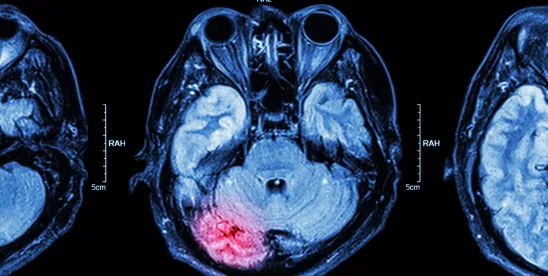Traumatic brain injury (TBI) is a leading cause of death and disability worldwide, often leading to posttraumatic seizures (PTS) which can exacerbate brain damage, increase hospital stays, and worsen functional outcomes. Early PTS, occurring within the first 7 days post-injury, differ biologically from late PTS and are a focus of seizure prophylaxis, particularly in severe TBI cases. Current guidelines endorse seizure prophylaxis for severe TBI, but its use in mild to moderate TBI remains contentious.
A systematic review and meta-analysis, conducted by Pease et al., aimed to evaluate the effectiveness of seizure prophylaxis in reducing the risk of early PTS in patients with mild (Glasgow Coma Scale [GCS] 13-15) and moderate (GCS 9-12) TBI. The researchers analyzed data from studies published between January 1991 and April 2023, focusing on observational studies from high-income countries. The key findings were:
- Data Sources and Study Selection: The review included 8 studies with 5637 patients for the mild and moderate TBI analysis, and 5 studies with 3803 patients for the mild TBI analysis.
- Outcome Measures: The primary outcome was the absolute risk reduction of early PTS in patients receiving seizure prophylaxis within the first week after injury.
- Results: The absolute risk reduction for early PTS in mild to moderate TBI was found to be 0.6% (95% CI, 0.1%-1.2%; P = .02). Similarly, for mild TBI alone, the reduction was 0.6% (95% CI, 0.01%-1.2%; P = .04). The number needed to treat to prevent one seizure was 167 patients.
Conclusion
The study concluded that while seizure prophylaxis after mild and moderate TBI does offer a statistically significant reduction in early PTS risk, the absolute risk reduction is minimal. This small benefit must be weighed against the potential risks associated with anti-seizure medications, such as adverse side effects and the inappropriate continuation of medication beyond the recommended 7-day period. Seizure prophylaxis for mild and moderate TBI shows a modest but significant reduction in early PTS risk. However, the low absolute risk reduction suggests that the decision to use prophylaxis should be carefully considered, balancing the benefits against the potential acute risks and the tendency for prolonged medication use.
References
- Pease, M., Mittal, A., Merkaj, S., et al. (2024). Early Seizure Prophylaxis in Mild and Moderate Traumatic Brain Injury: A Systematic Review and Meta-Analysis. JAMA Neurology, 81(5), 507-514. doi:10.1001/jamaneurol.2024.0689.



 />i
/>i

